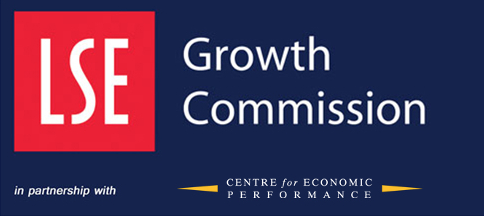When the UK gains control over migration policy, who should get priority? In this extract from its new report, the LSE Growth Commission says the new visa system establishes clear criteria and processes applications efficiently. Skills shortages mean the UK needs more high-skilled workers, not fewer. We must preserve our status as a magnet for talent from around the world.
The government has stated that controlling migration is a key priority in any new deal with the EU. EU membership puts migration decisions solely in the hands of EU citizens, as a precondition of access to the Single Market is the free movement of people. The previous section of this report showed that while there might have been localised costs associated with this (in particular areas or occupations), in aggregate the costs and benefits to the UK workforce and economy were broadly balanced.
Post Brexit, all migration and not just that for non-EU citizens will be based on UK policy decisions. While this is a change of direction, it puts the UK government on a par with most other countries around the world, few of which give unilateral free movement to the citizens of other countries. Moreover, this is not inconsistent with being a “pro-immigration” country in the spirit of Canada, Australia or New Zealand whose policies are intended to select the characteristics of migrants.
It is important that UK immigration policy post-Brexit should be based on a set of clearly defined criteria which reflect a coherent view of what type of immigration is desirable. Although not the only criterion, contributing to the skills-base and talent pool needed for the UK economy to flourish is a central consideration if immigration is to support economic growth effectively.

A starting point would be to extend the visa scheme that applies to non-EU immigrants to EU nationals. Current rules effectively exclude non-EU immigrants from all but graduate jobs and limit numbers arriving on work visas each year to around 55,000. (Non-EU migrants must apply for the Tier visas in a points based system.) This could result in skills shortages. Some employers already find it hard to recruit and retain highly skilled and mobile non-EU workers which contributes to the skills shortages that are consistently reported by entrepreneurs and managers. It is essential that the visa system processes applications in a timely way and is properly resourced in order to enable businesses to attract the skilled labour that they need.
In the year to September 2016, the UK granted almost 94,000 highskilled (Tier 2) visas to non-EU immigrants, a 1% increase on the year before. (57% of these applications came from Indian nationals; and US nationals were the second largest group accounting for 10% of the total. The main sectors employing these recent migrants were IT (42%), professional, scientific and technical activities (19%) and finance (12%). (ONS Migration Statistics Quarterly Report, Dec 2016.) Immigration from EU countries has not been dependent on skills, qualifications or educational attainment. Nevertheless, many of the EU migrants have been highly educated: of the EU migrants in the working age population 45% have high and 42% have a medium level of educational attainment. Around 48% of EU migrants were working in skilled jobs in 2016, according to ONS Labour Force Survey data.
Given the current free movement of workers within the EU, the system post-Brexit will pose a new administrative burden on businesses seeking visas for EU workers. This is likely to make it harder to recruit and retain top talent and might also put off skilled EU migrants from wanting to come to the UK in the first place. The potential impact of Brexit on the university sector is of particular concern. The students and academics that have contributed to the success of UK universities come from all over the world, and the sector is a source of skills, innovation and exports in its own right. Parliament has established a Select Committee on the topic and evidence presented so far suggests that applications (from both EU and non-EU students) have fallen since the EU referendum, and that academics now consider the UK a less attractive place to work and conduct their research.
The low end of the skill distribution is also a challenge. The prosperity of many industries depends on access to low-skilled EU workers. EU migrants constitute 31% of employment in food manufacturing, 23% in domestic personnel and 21% in accommodation. (Resolution Foundation (2016).) Unless firms can easily find native workers to fill these jobs, the output and competitiveness of these sectors is likely to fall due to staff shortages, and/or higher staff costs. When the criteria for visas are set, this should be based on a wide assessment of the labour market needs of UK businesses.
Policy recommendations
The UK has a long-standing commitment to openness and this should be maintained as the UK forges new relationships with the EU and rest of the world. This means low tariff and non-tariff barriers, facilitating FDI (including welcoming foreign ownership of UK based business) and openness to global talent.
Brexit could be interpreted as a reversal of this traditional commitment to openness and the government has the opportunity to signal that it is not. The UK’s long-standing current account deficit underlines the importance of market access for exporters and protecting UK consumers and businesses from large increases in import prices. Research shows that Brexit will imply significant economic costs, but the “type” of Brexit will determine how large these costs are.
The political and legal frameworks governing Brexit are evolving quickly. At this stage, it seems that the UK will be seeking a bespoke deal with the EU. Though it is quite unlikely that the EU will offer the UK a similar arrangement, the government should look carefully at the Liechtenstein model where some of the economic benefits of market access are maintained, while retaining the capacity to control immigration and negotiate deals outside the EU. In particular:
- The government should prioritise trade deals with its largest trade and investment partners – the EU and the US. Striking a free trade agreement with the US with a focus on reducing non-tariff barriers could provide a blueprint for other bilateral negotiations. Government should also be mindful of the medium term potential of fast growing emerging markets.
- The UK must negotiate market access for services, its key area of comparative advantage. This is likely to require maintaining most EU rules and regulations in this area. Mutual recognition of the importance of regulations affecting services underlines the importance of minimising non-tariff barriers to trade and should be on the table in any negotiation. The costs associated with such regulations should be weighed against the benefits from maintaining some preferential access to the single market. Negotiating a comprehensive deal is likely to take time. A temporary agreement, like EEA membership, has the attraction that it may mitigate the uncertainty among businesses and would also buy time to work out a permanent settlement.
- Trade and FDI must be considered in tandem. Many of the sectors where the UK is a strong exporter are also host to high levels of FDI and are often engaged in global value chains. Barriers to trade (tariff and non-tariff) could lead firms to relocate activity into the single market in order to access intermediate goods more cheaply, as well as sell products more competitively. To counter these forces, an effective industrial strategy, improving the supply side environment through infrastructure, skills promotion, investment in science and coordinating government support for exporters will ensure that the UK continues to be an attractive location for firms in key sectors.
- Continued strong engagement in international institutions. To foster constructive internationalism and the context for world trade at a time when they are under threat, the UK must continue to engage strongly in international institutions for trade, investment, aid and public goods. The UK must preserve its status as a magnet for talented individuals from around the world. An open approach to newcomers complements the natural advantages – including language, time zone and legal system – that make the UK a good place to study, work or build a business. The combined effect of immigration to date has been to create a stock of 7.4m working-age migrants, 3.4m of whom are highly educated. Yet the UK still faces skills shortages. The Commission proposes that:
- Rather than pursuing a net migration target and limiting the numbers of visas for skilled workers granted, the UK should aspire to increase the stock of foreign-born skilled workers. A stock of foreign-born skilled labour below its current level is likely to constrain UK growth. After the UK leaves the EU, we will need to ensure that the new visa system for skilled workers is properly resourced and operates on a timely basis so as not to discourage such workers coming to the UK.
- The government should clarify the immigration rights (and right to remain) of those who will become leading entrepreneurs, scientists, professionals and skilled practitioners. A dynamic economy relies on such people, refreshing the talent pool from those with a range of educational and cultural backgrounds as well as varied life experiences. At present, government policy is unclear on this issue which risks doing permanent damage to the economy. It is particularly important to maintain openness to bona fide students many of whom, if they stay in the UK after graduation, enhance the talent pool available to UK businesses.
This post represents the views of the authors and not those of the Brexit blog. It is an extract from the LSE Growth Commission’s UK Growth: A New Chapter report, in partnership with the LSE’s Centre for Economic Performance. Find out more about the Growth Commission.








Interesting until I read
Yet the UK still faces skills shortages. The Commission proposes that: Rather than pursuing a net migration target and limiting the numbers of visas for skilled workers granted, the UK should aspire to increase the stock of foreign-born skilled workers
And now I’m thinking condescending
Nobody could disagree with the idea behind trade deals with both the EU and USA; however from a practical point of view it will be very difficult to get a deep trade deal with both.
The problem is that in many areas the EU and USA rules and requirements are opposite. Environmental standards, labour standards, food standards to name three areas of the top of my head. Indeed EU/US trade neogitators have themselves been unable to bridge the gaps.
So in practice the UK is going to have to choose one for the deeper agreement with a much lighter agreement with the other.